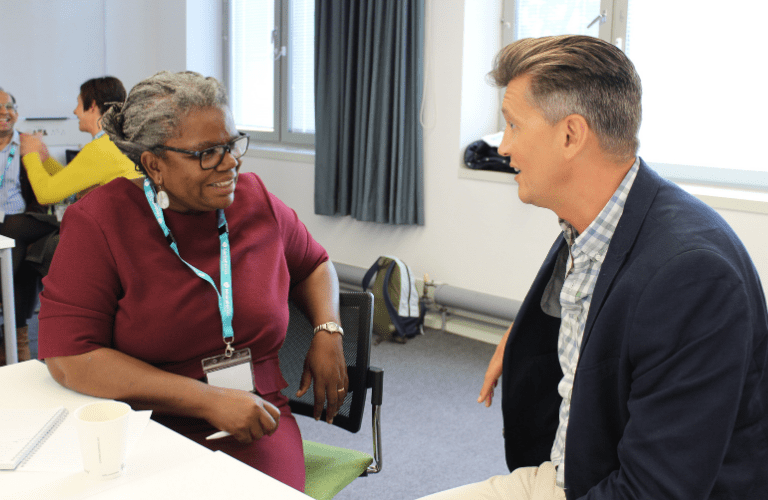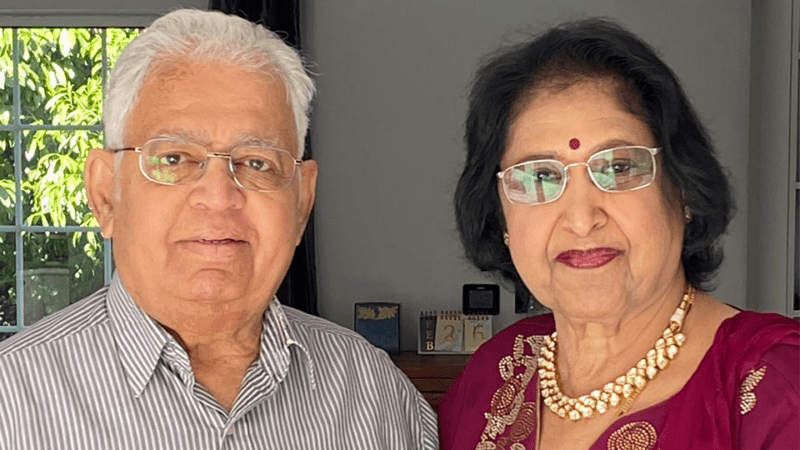
I can’t imagine having more empathetic bosses
Glenn shares how flexible working arrangements and support from his managers enables him to continue working whilst prioritising his wife Helen's care.
There are many misconceptions about dementia that exist in every corner of society. However, stigma and misconceptions can be higher amongst diverse Black, Asian and minority ethnic populations. This stigma can stop people from seeking a diagnosis or support which can leave families feeling overwhelmed and unsupported.
As well as various perceptions of what dementia is, there are many challenges to be encountered in relation to dementia amongst the various Black communities. While the biggest risk factor for dementia is age, the high prevalence of cardiovascular disease, hypertension and diabetes in African-Caribbean people puts them at greater risk of developing vascular dementia.

Mutsai Hove-Bird at the Admiral Nurse Forum
Dementia may be a new experience for some people, especially if families that migrated to the UK were of working age and did not bring older relatives. In some countries, dementia is viewed more as a normal part of ageing, or it can be viewed as a punishment by God or possession by spirits. This in turn makes it an ‘unpreventable’ condition and contributes to a poor understanding of dementia and how to manage it.
People living with dementia from African/African-Caribbean communities also tend to seek help later in the development of dementia. This means that they may not benefit from early diagnosis support, and often access services when the dementia is quite advanced or when there is a crisis. Barriers to diagnosis include stigma around dementia, worries about being treated unfairly and a lack of culturally tailored services after a diagnosis.
For first-generation migrants to the UK the experience of migration, and of coping with the lifetime impact of discrimination, reinforces a cultural expectation of resilience that makes individuals reluctant to seek help for health and social care problems. Most recently the Windrush generation’s experiences of racial discrimination by immigration authorities has further reinforced a perception of being discriminated against by other services, including health and social care.
Dementia UK is committed to the delivery of person-centred, culturally tailored care to meet the dementia support needs of families and people from Black communities. Over the years, Admiral Nurses have positively contributed to working with Black, Asian and minority ethnic communities to help break down stigma. We still have a lot more to learn about the full impact of dementia on Black communities and how best to offer appropriate support.
Our free, confidential Dementia Helpline is staffed by our dementia specialist Admiral Nurses who provide information, advice and support with any aspect of dementia.

Glenn shares how flexible working arrangements and support from his managers enables him to continue working whilst prioritising his wife Helen's care.

Will shares how his mum's diagnosis impacted the family and highlights the importance of advocating for young carers.

Pratibha shares her experience of caring for her late husband, Narayan Gopala, who lived with vascular dementia and died in 2024.